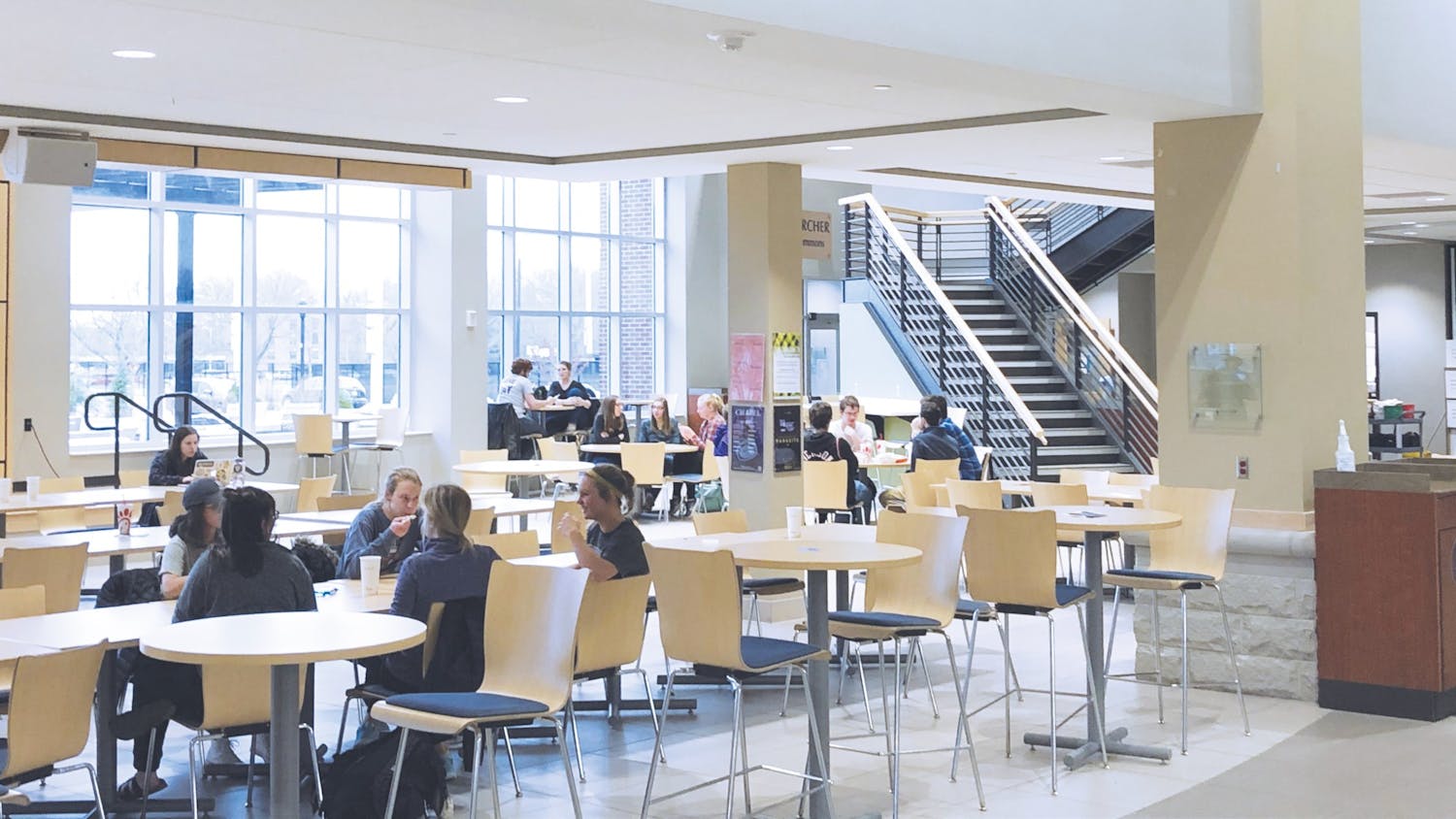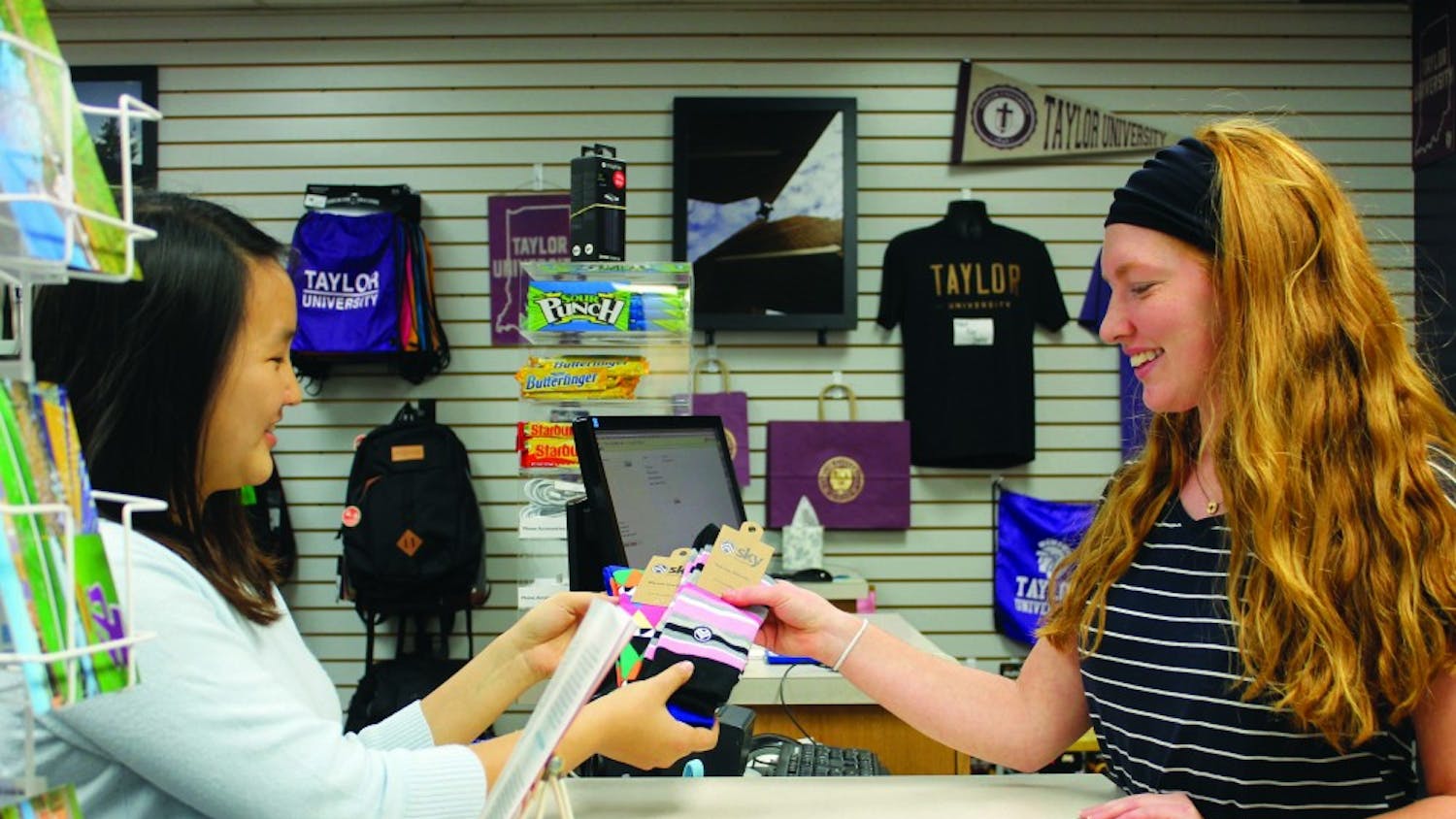From the front lines to behind the desks, essential workers are dedicating their time to ensure the survival and protection of others during the COVID-19 pandemic. But when it comes to student essential workers, their responsibilities and demands from online classes to the workplace only increase.
Sophomores Andrew Friesen, Ashley Anderson and freshman Hailey Hendricks all face unique challenges as student essential workers. Whether it be working at a daycare like Hendricks caring for the eldery like Friesen or stocking shelves like Anderson, they all attempt to battle COVID-19 while also battling classes.
Despite the known difficulties, Friesen, Anderson and Hendricks felt it was necessary to return to work.
“One of the bigger reasons (why I decided to return to work) was my daycare is often short-staffed and I knew coming back to it, that would be a problem,” Hendricks said. “I really care for a lot of kids I work with and I didnt want that to be a problem (that would cause the daycare to close).”
For Anderson, returning was a decision made before more extreme precautions were taken nationwide and before businesses were closed down. But despite this, she decided to stay and help wherever she could, even taking on extra tasks at Publix, a southeastern grocery store chain.
As for Friesen, he knew he could provide a light for those living in Carmel Senior Living, and he would have to take steps to protect both his family and those he worked with from the virus.
However, even with precautions at Welcome Place Daycare, Hendricks knows all too well that every safety measure is not always enough.
“We had someone contract COVID,” Hendricks said. “We had to shut down for a couple days and deep clean. But if I had not been back working, they would have probably remained closed. (But) it's because they had enough people to stay open (that they were able to).”
Despite the daily risk of exposure to the virus for Anderson, Hendricks and Friesen, none were worried enough to stop working. They all trusted in their precautions, sanitizing and self-quarantining when not at work to keep both them and their families safe.
Even so, they had more people to worry about than themselves: they had to worry about protecting the people they work with and serve.
“If I got sick, I know that the statistics are really high that I would survive,” Anderson said. “I think my worry would be if I got sick, I wouldn't want to spread it to anybody else, especially at work. But honestly, most of us at work are not super worried about it. We take precautions and we make sure we're staying clean and sanitizing everything, but there's not a fear at work, which I think is good.”
With every increase in precautions, work has also increased, Anderson said. To resolve this, more people have been hired and more responsibilities are given to workers.
However, Hendricks, Friesen and Anderson all agree the most challenging part of being a student essential worker is not balancing schoolwork and work, but figuring out how to maintain a community without in-person contact.
“As far as online school, I feel like I adapted pretty well,” Friesen said. “The hardest part for me is not feeling lonely. I have great family-life here and I'm really enjoying family time. (But), it's just missing my close friends, (and) I really only have two semesters left to Taylor. Thinking about that is really sad — like I'm missing all this time at Taylor with my friends. I just miss them.”
Like many others, Friesen, Anderson and Hendricks have all found different ways to maintain a form of community with their dorms and friends whether that be through the use of Marco Polo to communicate, Zoom calls for worship with friends or Instagram to join Taylor’s live chapel.
Yet, they pour into their jobs and make those who they work with and serve part of their community. Whether that be changing fist-bumps to elbow-bumps to maintain distance at the daycare or ensuring everything is clean for the next shopper, each worker attempts to be the cause of a smile in some way, even if it is small.
Friesen makes sure to keep the idea of the importance of a smile in his mind as he serves each resident.
“Sometimes we're running late and I feel like I have to just move on to the next room,” Friesen said. “But when I can, I try to just have a nice, short conversation with each resident. (The residents) really like to hear about how I'm doing, just to give them someone to talk to because only some of them are with their spouse; a lot of them are singles. And so, it (can be) a really lonely life. Hopefully, I can be a smiling face that they see and get to talk to, cause they don't get a lot of that.”
Because of all the extra work they have to put into ensuring the safety of the people they serve, Friesen, Anderson and Hendricks hope everyone cares for others the same way they demonstrate.
Anderson is honored that shoppers coming into the store thank her for her service, but she, Henderson and Friesen agree that the ultimate form of gratitude is respecting the quarantine guidelines.
“Take our precaution seriously,” Anderson said. “People (are) being negative about it like ‘All of this is ridiculous,” (and) questioning why we're doing certain things. And I understand that mindset, but at the same time, coming up to me when I'm your cashier and saying like, ‘Oh, this is stupid, this is not helping anything;’ people need to know that we're doing what we have to do to make sure that they're safe, even if (COVID-19) doesn't affect them, and it's not helpful to complain.”
As students continue to work alongside other essential workers and as quarantine conditions are at different levels of recession, Friesen simply wishes that along with following precautions, everyone makes it a point to pray.
Friesen asks for prayers for navigating one’s own freedom with quarantine lifting while also continuing to protect those still at risk.
“Continue to pray,” Friesen said. “It seems really interesting moving forward with senior retirement homes because they've managed to not get any cases till this point, (but) as the country starts to reopen, it seems inevitable that someone working there will get sick and bring it in. So, pray for wisdom and protection.”




